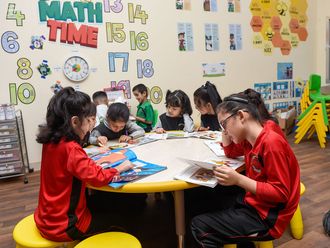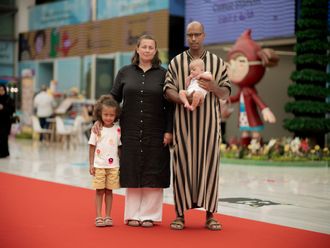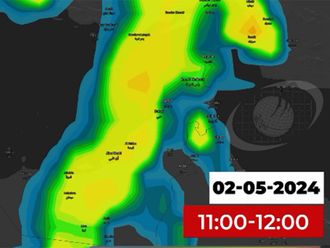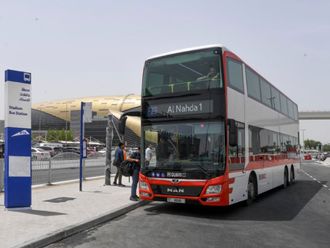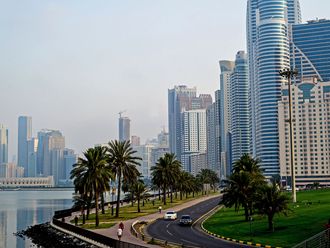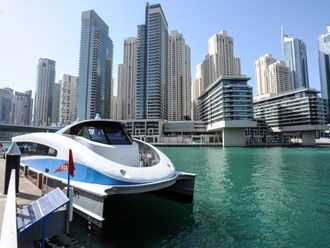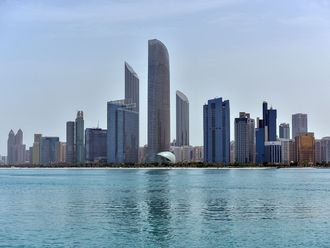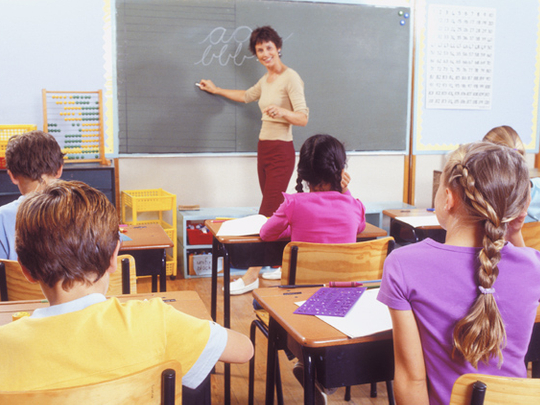
Dubai: Abnormally high teacher turnover rates in Dubai are negatively impacting the schools in the emirate, education officials have said.
The average teacher turnover in Dubai schools stands at about 15 per cent and goes up to even 60 per cent in some schools. To put this in perspective, in countries such as the UK, Denmark and Korea the teacher turnover rate is approximately 3 to 5 per cent.
The statistics have prompted the Knowledge and Human Development Authority (KHDA) to investigate the reasons behind the trend, which could lead to serious shortfalls in the quality of education.
"Initial statistics we collected show that the turnover of teachers and administrators in schools is about 15 per cent. This affects our efforts to improve the quality of education offered," Dr Abdullah Al Karam, director general of KHDA, said.
"There is a strong connection between teacher turnover and the quality of our educational systems."
"For instance, during inspections, many a time we were faced with new principals who said they need at least a year to make improvements we suggested."
The KHDA has begun efforts to study the issue and understand the reasons behind the high turnover, he said.
Inspections
"Whether it is the salary structure or something else we need to find out, because it is an abnormal figure," Al Karam said. The number is the main reason KHDA has been refusing requests by some schools to space out school inspections rather than having them annually, he said.
His comments came as the KHDA released its third annual report based on school inspections yesterday.
KHDA's Dubai Schools Inspection Bureau (DSIB) inspected 215 schools — 79 public and 136 private schools — last academic year. A total of 215,118 students attend these schools. Overall, 12 schools were rated outstanding, 82 as good, 104 as acceptable and 17 unsatisfactory.
Report comparison
"Beginning this year, self-evaluation will be mandatory for schools rated outstanding or good," Jameela Al Muhairi, head of the DSIB, said.
The self-evaluation report prepared by the schools will then be compared to the inspection reports prepared by DSIB, she said.
School inspections have paved the way for continuous improvement with 14 per cent of schools improving their ratings over the three years of inspections, Jameela said.
"Among private schools, 30 per cent improvement in ratings was seen over three years, while among public schools the ratings improved by 22 per cent."
Significant improvement
"Nine schools consistently scored the unsatisfactory rating in all the three annual inspections." But the number of pupils in these schools dropped considerably, from 17,648 pupils in 2008 to 10,484 in 2010.
The number of pupils attending outstanding schools jumped by 174 per cent, going from 3,098 in 2008 to 7,581 in 2010. The number of pupils attending schools rated good jumped by 21 per cent, climbing from 42,506 pupils in 2008 to 88,617 in 2010.
English language teaching in public schools and Arabic language teaching in private schools are some of the persistent issues since the inspections began, Jameela added.
Inclusiveness a criterion
With close to 60 per cent of Emirati pupils in Dubai attending private schools, the focus of the upcoming school inspections will be on the performance of Emirati students in five core subjects, officials said.
The next school inspections, which will begin a few months later, will also focus on children with special needs. "About 57 per cent of Emirati pupils in Dubai attend private schools and the number is even higher in early education with about 60 per cent of Emirati pupils in private schools," Dr Abdullah Al Karam, director general of KHDA, said.
The inclusion of a broad category of pupils with special needs — from those with learning disabilities to autism — in mainstream schools will be brought under the scanner in the upcoming inspections, he said. "Once schools are clear that they will be judged based on their stand towards children with special needs, then it will be taken seriously and improvements will happen." The progress of special needs pupils, how they are supported, how their parents are engaged, the strength of the curriculum, etc, will be some of the aspects that will be taken into account.
"We know there are constraints and it is not easy, but it is possible to improve just like how the cause and effect of implementing school inspections led to improvement," Al Karam said.


